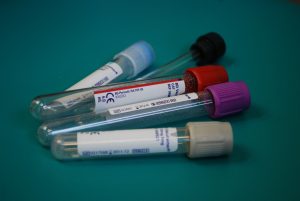Are common blood tests being optimally used for early cancer diagnosis? (PhD)
Start Date Oct 2018
Code U3-C, PhD
Status Ongoing
Collaborators: Prof Greg Rubin (Newcastle University), Prof Matthew Thompson (Washington), Prof Hardeep Singh (Baylor)
The project is motivated by two realisations. A. Biomarker-based test development has been slow to deliver a solution in the last 3 decades and to-date. B. Since 2015, several studies (including by CanTest investigators) have indicated that commonly used blood tests can provide useful information to risk assess patients with symptoms of possible cancer. Therefore empirical inquiries on how to optimise the use of common blood tests are worthy of exploration
Aims & objectives
This project aims to explore the potential for optimising the use of common blood tests (non-tumour marker-based) to aid the diagnosis of cancer in primary care.
Methodology
This project will principally encompass three studies with different methodologies. Study 1 will appraise the literature to understand the diagnostic utility for possible cancer of several common blood tests. The review will focus on the availability of point-of-care analogues to conventional tests, and the analytic utility and implementation issues affecting (or likely to affect) test use.
Study 2 will feature a healthcare epidemiology component analysing pre-collected data from patients subsequently diagnosed with cancer to identify use, and variation in use of common blood tests in primary care. Following these investigations, Study 3 will consist of an online vignette based survey to explore GP attitudes to using non-cancer specific blood tests (conventional or POCT) as an adjunct to decision-making for assessing the risk of cancer in patients with new symptoms.
Outputs & impact
It is expected that this research will help to catalyse the promising evidence about the use common blood tests for early cancer diagnosis by highlighting important implementation / dissemination / adoption issues for clinical practice and service delivery.
Publications
- Cranfield B, Koo MM, Abel GA, Swann R, McPhail S, Rubin G, Lyratzopoulos G. Primary care blood tests before cancer diagnosis: National Cancer Diagnosis Audit data. British Journal of General Practice 2022; BJGP.2022.0265. doi: 10.3399/BJGP.2022.0265



